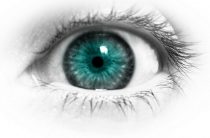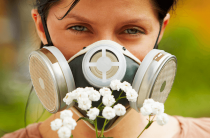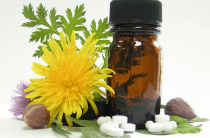According to statistics, the number of allergy sufferers has increased significantly in recent years, especially among children. An allergic reaction occurs as a response, albeit a rather specific one, from the immune system to foreign agents. Small patients are more likely than others to suffer from the consequences of the interaction of the body and allergens. What are the causes of allergies in young children ? What factors can provoke its development?
Causes associated with the work of the gastrointestinal tract, liver and kidneys
Most doctors unanimously declare that such violations can be attributed to the main causes of allergies in babies. Normally, allergen molecules of a protein nature, having been digested to the state of amino acids, lose their allergenic qualities. But with dysbacteriosis against the background, for example, of taking antibiotics or with peptic ulcer disease, such protein molecules already pose a threat. When they enter the bloodstream and are not digestible, the body quickly responds to the invasion of foreign substances. In this case, the reaction itself can be of a different nature: from a common cold or urticaria to the most severe conditions (Quincke's edema).
In just 24 hours, a person has time to encounter an average of 120 food allergens. If the digestive system is fully functional, then this meeting occurs without harm to the body. But overeating leads to the fact that there are much more allergenic substances, and poor digestion of food, inflammation of the intestines (of various sections), dysbacteriosis, and often parasites in the gastrointestinal tract that secrete poisons, significantly increase the risk of developing allergies in children.
It turns out that allergies often have roots in the poor functioning of the digestive system, as well as the pathology of the liver (this organ performs a cleansing function during or after diseases - cholecystitis, hepatitis, giardiasis). Liver damage by protozoa is called giardiasis. It is often asymptomatic or accompanied by digestive disorders. Pain in the right hypochondrium is also likely.
In renal failure, the kidneys also do not work properly. They perform their excretory function only partially, respectively, part of the harmful substances, among which there may be allergens, is retained in the body. Their exposure can provoke allergies in children of different ages to various foods or substances.
Early weaning from breastfeeding, improper complementary foods
Stopping breastfeeding too early and switching to formula are the causes of allergies. Usually, with an early transition to artificial feeding, the risk of developing enzyme deficiency increases. Allergies often come along with it. In young children, the mechanism for assimilation of food has not yet been finally formed and established, including adapted mixtures, not every baby will be able to perceive well.
The earlier introduction of complementary foods is even more problematic. It is necessary to wait for a sufficient level of formation of the digestive system. Only after this is shown the gradual introduction of products. They are given in very small amounts one at a time, and the next ingredient is introduced after a few days, if there was no allergy. If you have a reaction to any food, you should immediately exclude it from the diet and contact your pediatrician and pediatric allergist.
By the way, it is very difficult to detect enzyme deficiency in children. But doctors say that it goes away by itself over time, but a more significant cause of allergies (or rather, pseudo-allergies) in children is dysbacteriosis. This banal disease causes self-poisoning of the body by various harmful substances that are produced by pathogenic bacteria.
Antibiotic treatment
The treatment of many diseases requires the mandatory use of antibacterial drugs. Children often catch colds, are prone to tonsillitis, bronchitis, pneumonia. Of course, pediatricians have to prescribe antibiotics. Such drugs quickly kill harmful microbes, stopping infections. But they also have a clear drawback: they do not know how to “select” harmful microorganisms. In the fight against infectious agents, other victims appear - these are useful bacteria.
The occurrence of microbial imbalance leads to the development of the same dysbacteriosis. This condition can be detected with a routine stool test. Treatment consists in the use of intestinal antiseptics. They selectively destroy harmful agents, while preserving the beneficial part of the microflora. Bifid preparations in capsules also help perfectly.
It is best to protect yourself from an imbalance of microorganisms. To do this, doctors prescribe pro- and prebiotics in parallel with treatment with antibacterial drugs. It is especially dangerous to delay courses of antibiotics or apply them to a child without a doctor's prescription. In this case, dysbacteriosis, and then allergies are practically guaranteed to the baby.
Heredity
Genetic predisposition is one of the most significant reasons for the development of allergies in children. It most often manifests itself in crumbs, if at least one of the parents suffers from:
- hay fever;
- eczema;
- asthma;
- migraine;
- Food allergies.
The presence of allergic reactions even in grandparents is the reason for its appearance in children. If close relatives have a similar reaction, then the risk of similar manifestations in childhood reaches 60%. For this reason, the baby should be protected from allergens, try not to endanger. With a predisposition to hereditary allergies, proper nutrition, the environment and the ecology of the environment play an important role.
Maternal allergen abuse
An allergy in a baby can be laid down in utero. This happens in those situations when the mother, while expecting a child, abuses allergens. The fetus in 9 months manages to gain antibodies from the mother, which will later result in an allergy. Doctors insist that expectant mothers should have certain dietary restrictions, otherwise the likelihood of an allergy in a crumb after birth is significant. Even an allergy to medicines is likely if the mother was treated with them during pregnancy.
Women sometimes have to sacrifice their taste preferences in order to protect their child from danger. The presence of bad habits also has a negative effect. Refusal of them is important for pregnant women. Smoking and alcohol significantly aggravate the situation. From this, not only allergies arise, but also malformations, problems in the functioning of vital organs.
Improper nutrition of the mother during breastfeeding
The best prevention of allergic diseases is prolonged breastfeeding. But the nutrition of the mother plays a decisive role in the effectiveness of this measure. Most often this happens if the mother consumes such foods:
- Cow's milk (a very strong allergen, despite the imaginary safety for the child);
- Seafood (including fish);
- Nuts;
- Strawberry;
- Chocolate;
- Carbonated drinks (especially sweet ones);
- Honey.
The presence of such a risk does not mean that you should not eat these foods at all. At first, at the beginning of breastfeeding, the mother follows a strict diet. Gradually, she can introduce allergen products in a small amount (without abusing them). In this case, the child will gradually, through breast milk, get used to such products. In the future, this will simplify the introduction of them into the diet of the baby.
Non-compliance with hygiene standards
Rooms where children live should be cleaned regularly. The accumulation of dust, and even worse, the presence of dampness and fungus is a sure way to allergies. Items that are difficult to process should be avoided in the interior. For example, artificial flowers often collect dust. But the presence of some indoor plants (not those that provoke allergies), on the contrary, is welcome. It is also important to pay due attention to the ventilation of the room.
Often, an allergic disease becomes the result of interaction with hygiene products. Cleaning in the room where the baby lives should be carried out only with hypoallergenic means. The same goes for bathing your baby. Sometimes flavorings and dyes are the reasons for the corresponding protective reaction of the body.
Ecological situation
The air that a child breathes, the water that he drinks, the products from the daily diet of children are oversaturated with chemicals and additives. Of course, in children living in industrial regions, problems with allergies are many times more common. The release of various chemicals into the environment makes children, as well as adults, more vulnerable to allergens.
Those who live in such environmentally unfavorable conditions should take care of the prevention of allergies. To do this, you need to regularly strengthen the immune system and regularly travel outside the contaminated areas. With children, do not forget that a sharp change in climate is not safe. Traveling with young children must be carefully planned.
If the child still has an allergic reaction, then it is necessary to identify its cause as soon as possible. By eliminating the provoking factor, it will be possible to avoid new episodes and complications of the disease. Does your baby have allergic manifestations, but it is not possible to establish why this is happening? Then be sure to make an appointment with a pediatric allergist. But you can start acting right now by writing to our professionals. Describe your problem in as much detail as possible so they can comment on your situation.















